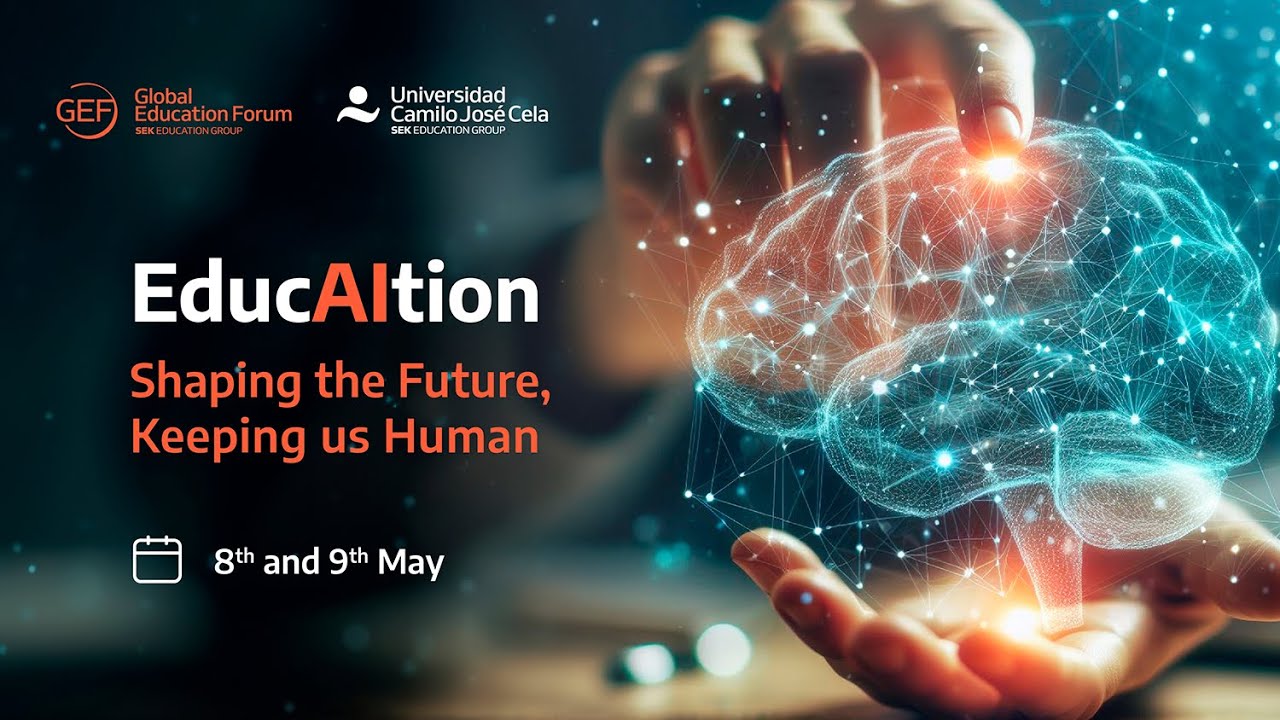KKA: Modul 1 - SD
Summary
TLDRThis video script explores the evolving field of Artificial Intelligence (AI), defining it through the perspectives of various experts. AI is depicted as systems that interpret data, learn from it, and make decisions. The script emphasizes the importance of AI literacy, detailing key aspects such as understanding AI concepts, data processing, critical thinking, and practical skills. Students need to grasp the ethical and social implications of AI applications, fostering informed participation in discussions about AI's role in society. This knowledge equips them to navigate and contribute to the digital era effectively.
Takeaways
- 😀 AI is defined differently by various experts depending on their perspective, focusing on system capabilities, agent intelligence, or human-like thinking and actions.
- 😀 Kaplan and Hanlein (2019) define AI as the ability of a system to interpret external data, learn from it, and apply that learning to achieve goals and tasks.
- 😀 Pole and Mwor (2010) see AI as a field studying the synthesis and analysis of computational agents that can act intelligently.
- 😀 Russell and Norvig (2010) define AI as the study of intelligent agents that can perceive their environment, think like humans, act like humans, and act rationally.
- 😀 AI is driven by creating algorithms and models that enable computers to perform functions typically done by humans, making it an innovative and evolving field.
- 😀 AI literacy for students is crucial in the digital age, involving understanding basic AI concepts and how AI systems work, including machine learning techniques.
- 😀 Understanding the types of data used in AI development and how data is collected, processed, and analyzed is key for students.
- 😀 Critical thinking about AI applications, including the ethical implications and potential biases, is essential for students.
- 😀 Students should recognize the social impacts of AI decisions and how these decisions can affect individuals and society.
- 😀 Practical AI literacy includes interacting with AI systems, learning basic coding, and using AI tools effectively, preparing students for real-world applications of AI.
Q & A
What is the definition of Artificial Intelligence (AI) according to Kaplan and Hanlein (2019)?
-Kaplan and Hanlein (2019) define AI as the ability of a system to accurately interpret external data, learn from that data, and apply the learning to achieve goals and solve specific tasks.
How do Pole and Mwor (2010) define Artificial Intelligence?
-Pole and Mwor (2010) define AI as a field of study focused on the synthesis and analysis of computational agents capable of acting intelligently.
What is the AI definition given by Russell and Norvig (2010)?
-Russell and Norvig (2010) define AI as the study of intelligent agents that can perceive their environment and take actions. These agents can think like humans, act like humans, think rationally, and act rationally.
What does AI encompass in terms of algorithms and models?
-AI involves the creation of algorithms and models that enable computers to perform complex functions typically carried out by humans, making it an innovative and continuously evolving discipline.
What are the essential aspects of AI literacy for learners?
-AI literacy for learners includes understanding the basic concepts of AI, how AI systems operate (such as machine learning processes), and the techniques used in AI development. It also involves recognizing the types of data used in AI models and understanding data collection, processing, and analysis.
Why is understanding data crucial for AI literacy?
-Understanding data is crucial because it helps learners recognize the types of data used in AI, as well as how data is collected, processed, and analyzed to generate valuable insights, which are essential for the development of AI systems.
What role does critical thinking play in AI literacy?
-Critical thinking is essential for evaluating AI applications, considering ethical aspects, biases, and potential societal impacts. It enables learners to assess how AI systems' decisions can affect individuals and society.
What impact does AI have on society, according to the transcript?
-AI can have significant societal impacts, as decisions made by AI systems can affect individuals and communities. It is important to consider these effects and address the ethical implications of AI in society.
What practical skills are necessary for AI literacy?
-Practical skills for AI literacy include the ability to interact with AI systems, a basic understanding of coding, and knowledge of how to use relevant AI tools effectively.
How does mastering AI literacy prepare learners for the digital age?
-By mastering AI literacy, learners will be better equipped to contribute to discussions about technology and its applications. They will also be able to apply AI-related skills in their daily lives, enabling them to adapt to the digital age more effectively.
Outlines

Dieser Bereich ist nur für Premium-Benutzer verfügbar. Bitte führen Sie ein Upgrade durch, um auf diesen Abschnitt zuzugreifen.
Upgrade durchführenMindmap

Dieser Bereich ist nur für Premium-Benutzer verfügbar. Bitte führen Sie ein Upgrade durch, um auf diesen Abschnitt zuzugreifen.
Upgrade durchführenKeywords

Dieser Bereich ist nur für Premium-Benutzer verfügbar. Bitte führen Sie ein Upgrade durch, um auf diesen Abschnitt zuzugreifen.
Upgrade durchführenHighlights

Dieser Bereich ist nur für Premium-Benutzer verfügbar. Bitte führen Sie ein Upgrade durch, um auf diesen Abschnitt zuzugreifen.
Upgrade durchführenTranscripts

Dieser Bereich ist nur für Premium-Benutzer verfügbar. Bitte führen Sie ein Upgrade durch, um auf diesen Abschnitt zuzugreifen.
Upgrade durchführenWeitere ähnliche Videos ansehen

What is AI?

What Does the AI Boom Really Mean for Humanity? | The Future With Hannah Fry

GEF Madrid 2024: Creating a New Education System

What is Artificial Intelligence? | Experience AI

Menggunakan fitur Artificial Intelligent di telegram Ai

تحليل البيانات في قطاع الأعمال | م. زياد الشاوي | بودكاست لقاء
5.0 / 5 (0 votes)
